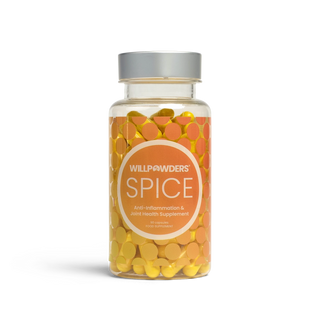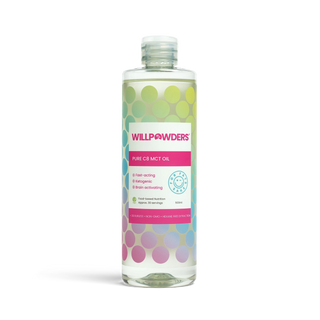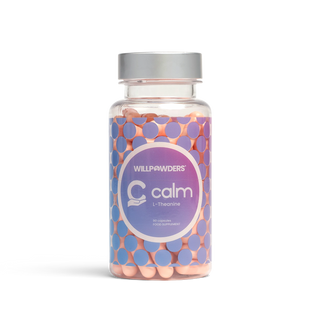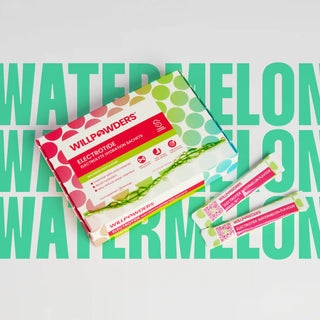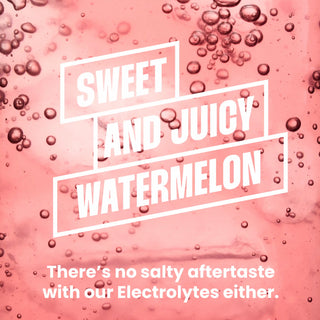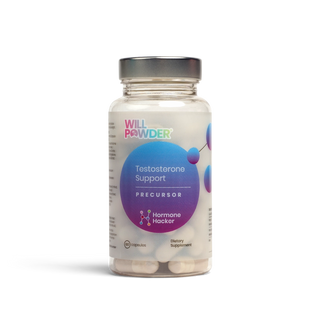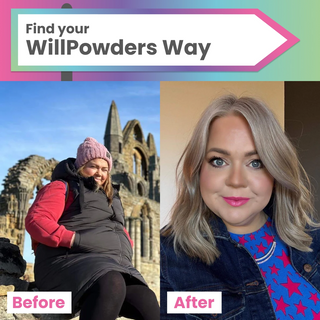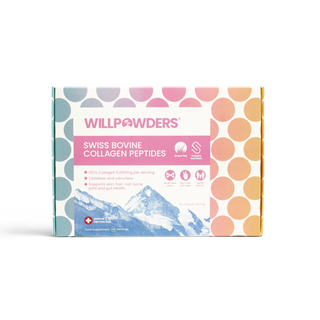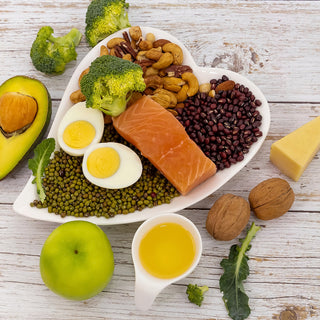
Fats: The Good, The Bad and The Ugly
I’m fat, you’re fat, we’re all made of fat… at a fundamental level that is. Contrary to popular belief, we actually need fat to survive; we literally couldn’t live without it!
Every living cell in your body has a membrane that is made out of the fat that you eat. Your brain is 60 percent fat. Fat is a great source of energising fuel; it keeps you full for longer. Fat keeps your skin supple and soft instead of leathery and sallow. It plays a huge part in wound healing and vitamin absorption. Basically, fat is necessary for many biological functions and without it, your health (and appearance!) would seriously suffer. It’s time to bring back the fat, for fats sake! For years, fat has been demonised by doctors, nutritionists, dietitians, big food and the media, who have all advocated for low-fat diets as the best way to reduce obesity and cardiovascular disease. It’s one of the biggest nutrition lies that the public’s been told throughout history. Luckily, thanks to science and evolution (being the biggest study), we’ve moved on from this rhetoric and it’s now widely accepted that fats are essential to our bodies’ optimal functioning. In fact, several studies have demonstrated that a fat-based diet can prevent cardiovascular disease and aid in fat loss. If you eat fat, you burn fat, if you eat carbs, you store carbs as fat (aka sugar).
Good vs Bad – Understanding the Difference:
Whilst eating fat is an essential part of a healthy diet, it’s important to eat the right kind (and in the right state) because some fats will contribute to your health, whilst others will detract from it. Knowing the difference is crucial to preventing disease and living a healthy lifestyle.
Here’s a quick guide to the good, the bad and the ugly when it comes to dietary fats. This is definitely a ‘bookmarkable’ page!
The Good:
Healthy fats can be broken down into two categories: unsaturated & saturated fats. Although saturated fats were once considered unhealthy and artery-clogging, lots of recent research has shown that they too can be beneficial as part of a healthy diet. They can be a necessary stepping stone in blunting cravings for carbs such as bread and biscuits.
Good fats are high in omega 3, can lower inflammation, improve heart health[2], help maintain healthy blood sugar levels, boost cognitive function, improve the appearance of your skin, support satiety and promote weight loss. Look for ingredients that are unprocessed and naturally high in fats. For example: avocados, full-fat dairy, olive oil, coconuts, fatty fish and nuts.
For medium and high-heat cooking, stable fats are your best bet:
- Butter
- Ghee
- Duck & goose fat
- Chicken fat
- Pork lard
- Beef tallow
- Coconut oil
- Avocado oil
Monounsaturated oils are best used cold, as dressings or on a very low heat:
- Extra virgin olive oil (high phenolic if possible)l
- Hazelnut oil
- Macadamia oil
- Almond oil
Polyunsaturated fats are the most unstable oils that can be easily destroyed by heat; they should only be consumed in cold-pressed form and should never be used for cooking. They are excellent for flavouring dishes after they have been cooked.
- Sesame oil
- Walnut oil
- Flax-seed oil
- Rice bran oil
The Bad:
The fats listed below are typically industrialised and highly refined oils that go through high-heat and chemical processing, resulting in a high omega-6 content which can lead to chronic inflammation, disease and weight gain. They are often found in processed, fried foods and restaurant food. Avoid these as much as possible and pay attention to the ingredients list on packaged foods.
- Sunflower oil
- Soybean oil
- Canola oil - aka Rapeseed oil
- Corn oil
- Vegetable oil
- Grapeseed oil
- Safflower oil
- Peanut oil
- Palm kernel oil
- Vegetable oil spreads
- Cottonseed oil
The Ugly:
Trans fats, the worst fats of all, should be avoided at all costs. These fats are often added to foods through a process of hydrogenation and are so chemical-laden that they can barely pass as food, in my opinion. Trans fats are typically found in highly-processed fatty foods such as crackers, cakes, doughnuts, pastries and processed nut butters. Trans fats are detrimental to your health and a study in the New England Journal of Medicine reported that each 2 percent increase in calories consumed from trans fats nearly doubled the risk of coronary heart disease.[4]
- Margarine
- Vegetable shortening
- Partially hydrogenated or hydrogenated oil
- High stearic acid or stearic-rich fat
The Verdict
A healthy diet should include a good mix of monounsaturated and polyunsaturated fats with moderate amounts of saturated fats from natural sources like dairy which has been grass fed or free range livestock. At least 20–30 percent of your total calories should come from fat, mostly unsaturated fats, such as nuts, seeds, avocados and olive oil. When it comes to saturated fat, stick to grass-fed beef, coconut oil and MCT Oil rather than fried foods or processed meats that are laden with additives and harmful ingredients. Remember, fats can cross the blood brain barrier, so it’s not just your waistline that you need to protect from inflammatory oils.
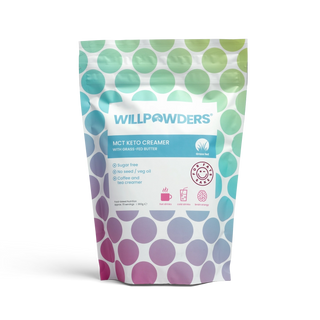

MCT Keto Powder
WillPowder’s MCT Keto Powder mixed into your morning coffee will give you a boost of stable energy without the midday slump. It’s fantastic at keeping you feeling full for longer and keeping those pesky cravings at bay. The WillPowders MCT Keto Powder is made from premium grade Indonesian coconuts and grass-fed butter. Never use seed or vegetable oils in food, and hopefully, now you understand why!
For information about the dangers of veg and seed oils, take a look at Cate Shanahan’s, Deep Nutrition.
#juststopseedoil - sign up to get it out of our children’s food.
Disclaimer
Our blogs are written with love in the hope that they go some way in helping you feel like the rockstar you are, and whilst we do our due diligence, research like maniacs and fact check our stuff, we know everyone’s journey is different. They are intended to educate and empower you, not usurp medical advice. We would never advise you to stop, adjust, or modify any prescription medication without the direct supervision of your healthcare practitioner, but don’t be afraid to talk to your doctor about your new found knowledge, brought to you by the marvels of nature because they don't know everything! Blogs are always informed by Davinia but often written by a member of the team. Not all blogs reflect Davinia's experiences and sometimes provide alternative perspectives

 Collagen
Collagen
 Protein
Protein
 MCT
MCT
 Electrolytes
Electrolytes
 Vitamins & Minerals
Vitamins & Minerals
 Hormones
Hormones
 Nootropics
Nootropics
 Kombucha
Kombucha
 Biohacking Books
Biohacking Books
 Bundles
Bundles
 Accessories
Accessories






